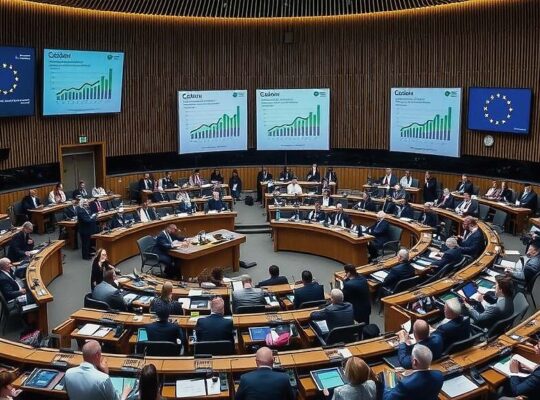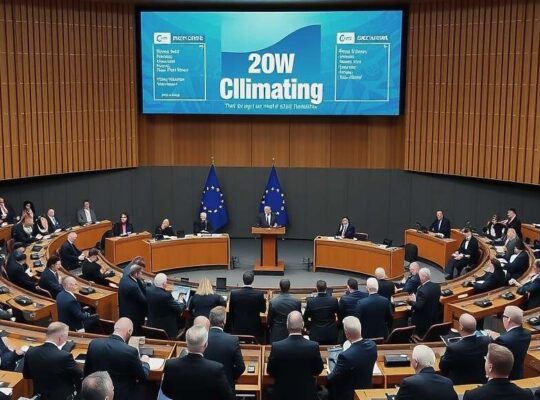A new report from the United Nations Environment Programme (UNEP) paints a stark picture of the world’s faltering commitment to climate action, revealing that the planet is currently on track for a catastrophic 2.8 degrees Celsius of warming. This represents a marginal improvement from last year’s projection of 3.1 degrees, but remains drastically off course from the internationally agreed-upon goal of limiting warming to 1.5 degrees Celsius – a threshold increasingly deemed unavoidable to breach, even temporarily.
The “Off Target” report analyzes updated Nationally Determined Contributions (NDCs), the climate pledges submitted by countries under the Paris Agreement. While the aggregate impact of these pledges suggests a potential warming range of 2.3 to 2.5 degrees Celsius if fully implemented, the report highlights a troubling gap between ambition and reality. Current policies, as they are being enacted, will likely push warming to 2.8 degrees Celsius, underscoring the pervasive issue of insufficient implementation.
Compounding the problem, the European Union failed to submit its updated NDC in time, a consequence of internal disagreements over climate intermediate targets for 2040. This delay exemplifies the political hurdles hindering collective action and undermining the credibility of the Paris Agreement.
Despite the gloomy outlook and the increase in global emissions by 2.3 percent in 2024, reaching a total of 57.7 gigatonnes of CO2 equivalent – a trajectory entirely counter to what is needed – UN Secretary-General António Guterres maintains a cautious optimism. He emphasizes that while a temporary overshoot of 1.5 degrees seems inevitable, the 1.5-degree target remains “our guiding star”. Reaching it, however, demands a radical acceleration of efforts.
The report acknowledges the existence of readily available solutions, particularly the rapid growth of affordable renewable energy and strategies for mitigating methane emissions. However, critics argue the current pace of implementation is politically driven and lacks the necessary urgency. The required emissions reductions by 2030 – a 40% decrease from 2019 levels – necessitate immediate and transformative action, leaving only five years to enact changes of unprecedented scale. Full implementation of the current NDCs would only achieve a 15% reduction by 2035, far short of the 55% needed to plausibly remain on track for the 1.5-degree pathway.
The report serves as a critical assessment, highlighting not just the technical solutions at hand but also the profound political will – or lack thereof – needed to avert a worsening climate crisis. It leaves open the question of whether the international community can overcome its internal divisions and embrace the necessary and often uncomfortable, choices required to protect the planet’s future.












